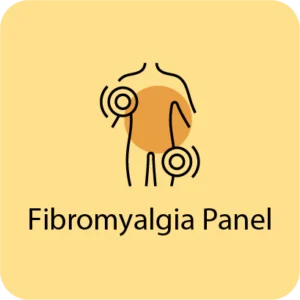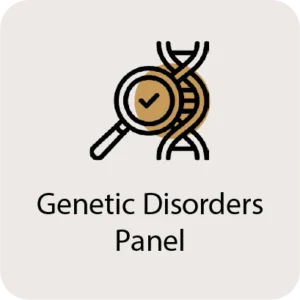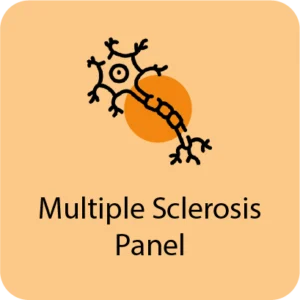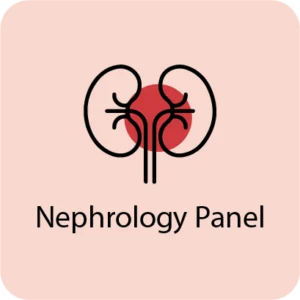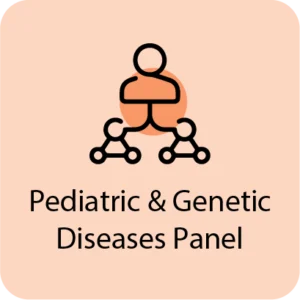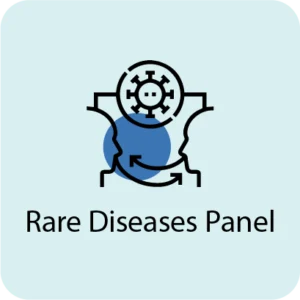Methilation Panel
Methylation is a crucial biochemical process involved in regulating gene expression, DNA repair, neurotransmitter synthesis, detoxification, and various essential functions in the body. Methylation panel testing offers a comprehensive assessment of methylation status and genetic variants associated with methylation pathways. It helps for personalized insights and targeted interventions to optimize health and well-being.
What is Methylation Panel Testing?
Methylation panel testing shall involve analyzing specific genetic markers and biochemical pathways related to methylation processes in the body. The comprehensive testing approach shall evaluate key components of methylation. This shall include methyl groups (CH3), cofactors, methyltransferase enzymes, and regulatory genes involved in methylation pathways. By further assessing methylation status and identifying genetic variants, methylation panel testing shall provide valuable information. This goes well about an individual’s susceptibility to various health conditions and their response to specific interventions.
Key Components of Methylation Panel Testing:
- Methylation Pathways: The assesses with activity and function of critical methylation pathways in the body. This shall include the methionine cycle, folate cycle, transculturation pathway, and one-carbon metabolism. Such pathways play vital roles in DNA synthesis, repair, neurotransmitter metabolism, detoxification, and epigenetic regulation.
- Genetic Variants: Methylation panel testing shall evaluate genetic variants (those single nucleotide polymorphisms or SNPs). It is well associated with methylation pathways and related enzymes. Like methylenetetrahydrofolate reductase (MTHFR), methionine synthase (MTR), methionine synthase reductase (MTRR), and others. These genetic variants can influence methylation status and may impact susceptibility to various health conditions.
- Nutrient Status: Methylation panel testing might also assess nutrient status and cofactor levels critical for methylation processes. This includes vitamin B12, folate, vitamin B6, choline, betaine, and other micronutrients. Adequate levels of these nutrients are essential for supporting optimal methylation and overall health.
Benefits of Methylation Panel Testing:
- Personalized Health Insights: Methylation panel testing provides personalized insights into an individual’s genetic predispositions, methylation status, and potential health risks. By understanding genetic variants and methylation pathways. Some individuals can make informed decisions about lifestyle modifications, dietary interventions, and targeted supplements to optimize health outcomes.
- Risk Assessment: Methylation panel testing helps assess an individual’s risk of developing various health conditions associated with methylation imbalances. It includes cardiovascular disease, neurodegenerative disorders, mood disorders, autoimmune diseases, cancer, and others. Identifying genetic predispositions allows for early intervention and preventive measures to mitigate risk factors and improve health outcomes.
- Treatment Guidance: Methylation panel testing offers guidance on personalized treatment strategies tailored to an individual’s genetic profile and methylation status. This might include targeted supplementation with methyl donors (such as methylfolate, and methylcobalamin), cofactors, and other nutrients to support optimal methylation function and address underlying imbalances.
Why Choose Methylation Panel Testing?
- Comprehensive Assessment: Methylation panel testing shall further offer a comprehensive assessment of methylation status, genetic variants, and nutrient status. Some of the critical things for optimal health and well-being.
- Personalized Approach: Lifecode utilizes a personalized approach to methylation panel testing, providing tailored recommendations based on individual genetic profiles. These include lifestyle factors and health goals.
- Empowerment through Knowledge: Methylation panel testing empowers individuals with valuable knowledge about their genetic health. It shall enable them to take proactive steps towards optimizing methylation function and improving overall health outcomes.
Why Get Methylation Panel Testing Done Soon?
- Early Detection of Imbalances: Methylation imbalances might further contribute to a wide range of health issues. It includes neurological disorders, chronic diseases, mood disorders, and hormonal imbalances. Getting Methylation Panel Testing done soon allows for early detection of imbalances, enabling proactive intervention and prevention of potential health complications.
- Tailored Treatment Approaches: Understanding an individual’s methylation status through panel testing allows for personalized treatment approaches. This is well based on the test results; healthcare providers can recommend targeted interventions. Some of it includes supplementation with methyl donors (e.g., folate, B vitamins, SAM-e), lifestyle modifications, and nutritional support to optimize methylation and support overall health.
- Prevention and Wellness Optimization: It offers valuable insights into health risks and vulnerabilities. This shall allow individuals to take proactive steps toward prevention and wellness optimization. By addressing methylation imbalances early, individuals can mitigate the risk of developing chronic diseases, optimize health outcomes, and enhance overall well-being.
Methylation panel testing offers a valuable tool for assessing genetic predispositions, methylation status, and potential health risks. By understanding methylation pathways and genetic variants, individuals can make informed decisions about lifestyle modifications, targeted interventions, and preventive measures.
| Categories | Conditions Observed |
|---|---|
| Content Yet to Receive | Content Yet to Receive |
How does DNA methylation affect gene expression and cellular function?
DNA methylation plays a crucial role in regulating gene expression by modulating the activity of genes. Methylation patterns can influence cellular processes such as growth, development, differentiation, and response to environmental factors.
What are some common genes or genetic regions analyzed in a methylation panel?
Common genes or genetic regions analyzed in a methylation panel include tumor suppressor genes, oncogenes, genes involved in detoxification pathways, neurotransmitter metabolism, hormone regulation, immune function, and oxidative stress response.
How does genetics influence DNA methylation patterns?
Genetics can influence DNA methylation patterns through genetic variations or mutations that affect enzymes involved in the methylation process. Additionally, environmental factors and lifestyle choices can also impact methylation patterns.
Who should consider undergoing a methylation panel?
Individuals with a family history of chronic diseases, metabolic disorders, neurodevelopmental disorders, or other health concerns may consider undergoing a methylation panel to gain insights into their genetic predispositions and identify potential risk factors.
Can a methylation panel help predict an individual's response to certain medications or therapies?
Yes, a methylation panel can help predict an individual’s response to certain medications or therapies by identifying genetic variations associated with drug metabolism, treatment efficacy, and potential side effects. This information can guide personalized treatment plans for better outcomes.




























